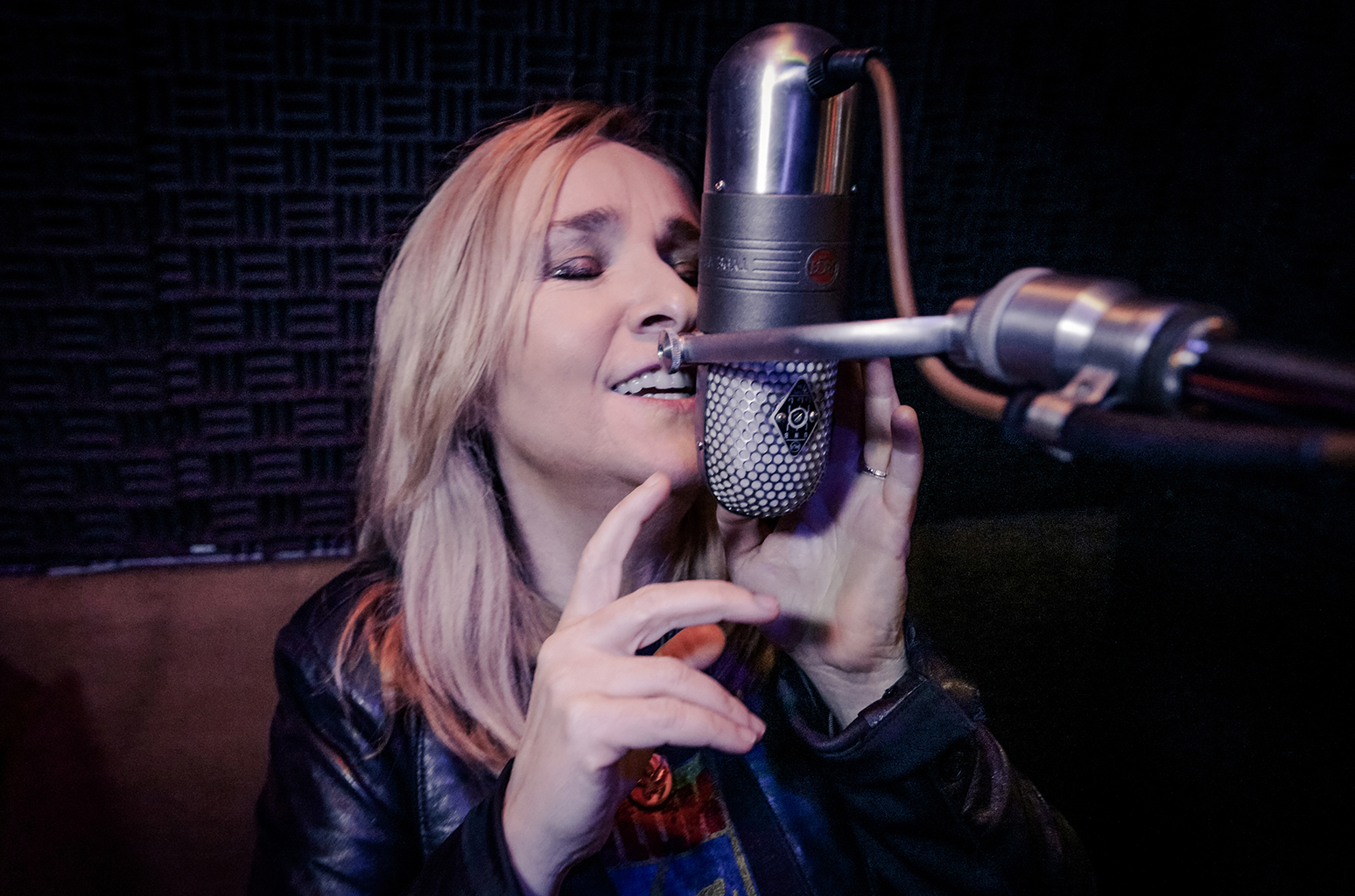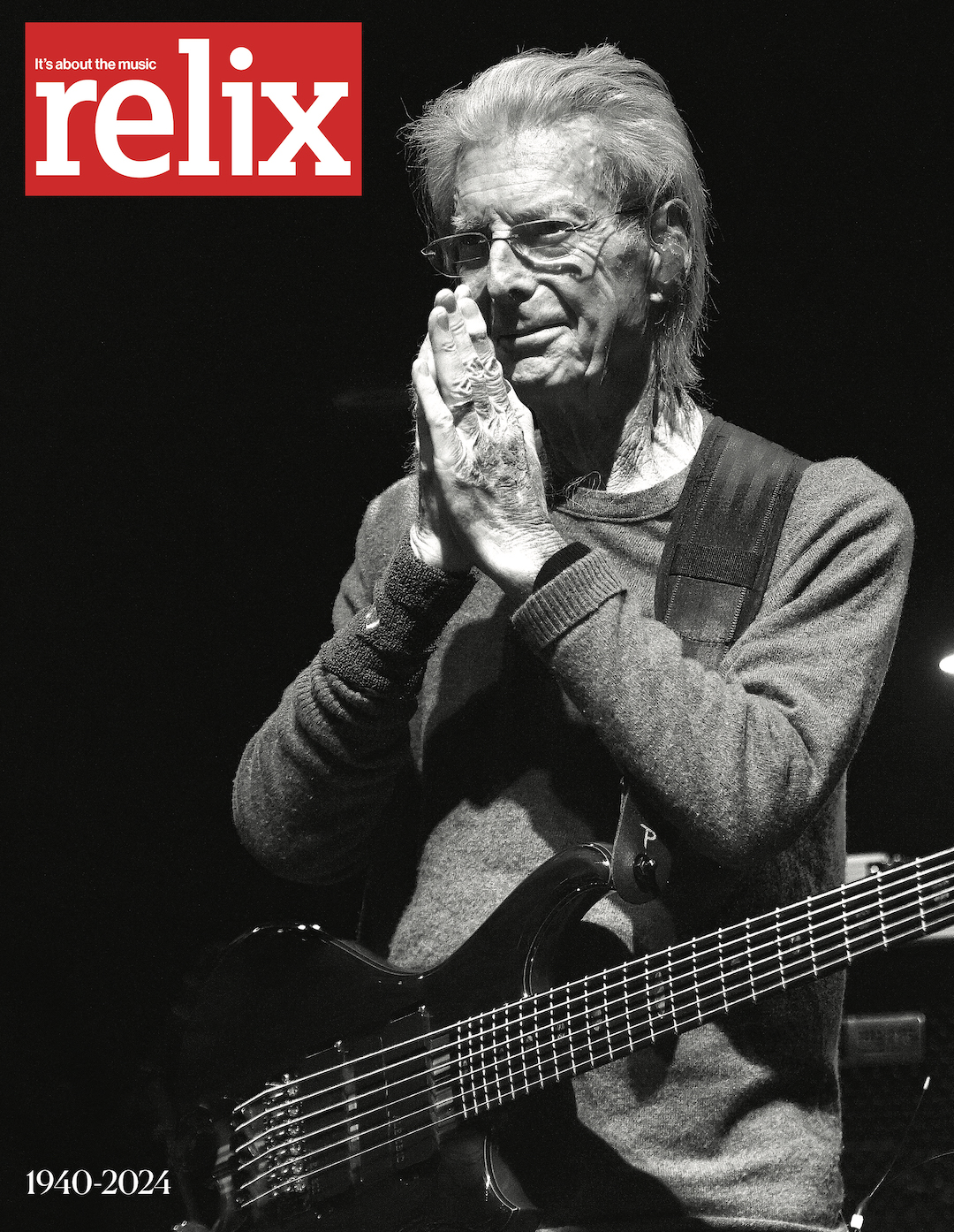Parting Shots: Melissa Etheridge
 Melissa Etheridge’s latest release, Memphis Rock and Soul, pays tribute to Stax Records and its signature sound. Although the original Stax studio no longer exists, she recorded the album using vintage gear (including Al Green’s RCA 77DX ribbon microphone) in the label’s home city of Memphis at another spot with deep roots, Willie Mitchell’s Royal Studios. There, she cut tracks associated with Otis Redding, The Staple Singers, Sam & Dave, William Bell and others. Etheridge explains that her intent was not only to directly spotlight the music that she loved, but also to take things a bit deeper and emphasize her musical lineage. “I wanted to draw that line and say, ‘Look, this music not only inspired me, but it also inspired the people that inspired me.’ Songs like ‘Bring Me Some Water’ and ‘I’m the Only One’ come directly from Albert King, from rhythm and blues, and soul music. I would sit and listen to Otis Redding and say, ‘I want a song like that. I want to move people like that.’ It’s a very direct correlation and inspiration. The longest part was picking the songs because the catalog is deep and good and endless. There were so many different ways I could’ve gone. I wanted to bring The Bar-Kays and The Mar-Keys more into it. I didn’t even scratch Wilson Pickett’s whole thing. Ultimately, I narrowed it down to songs that resonated inside of myself like The Staple Singers, who were a huge part of my life. The reason there’s so many Otis songs is he drove this project for me.”
Melissa Etheridge’s latest release, Memphis Rock and Soul, pays tribute to Stax Records and its signature sound. Although the original Stax studio no longer exists, she recorded the album using vintage gear (including Al Green’s RCA 77DX ribbon microphone) in the label’s home city of Memphis at another spot with deep roots, Willie Mitchell’s Royal Studios. There, she cut tracks associated with Otis Redding, The Staple Singers, Sam & Dave, William Bell and others. Etheridge explains that her intent was not only to directly spotlight the music that she loved, but also to take things a bit deeper and emphasize her musical lineage. “I wanted to draw that line and say, ‘Look, this music not only inspired me, but it also inspired the people that inspired me.’ Songs like ‘Bring Me Some Water’ and ‘I’m the Only One’ come directly from Albert King, from rhythm and blues, and soul music. I would sit and listen to Otis Redding and say, ‘I want a song like that. I want to move people like that.’ It’s a very direct correlation and inspiration. The longest part was picking the songs because the catalog is deep and good and endless. There were so many different ways I could’ve gone. I wanted to bring The Bar-Kays and The Mar-Keys more into it. I didn’t even scratch Wilson Pickett’s whole thing. Ultimately, I narrowed it down to songs that resonated inside of myself like The Staple Singers, who were a huge part of my life. The reason there’s so many Otis songs is he drove this project for me.”
How would you characterize the power of Otis Redding?
As a songwriter, singer and an entertainer, Otis is pretty much unparalleled. I’ve seen a video of Janis Joplin watching Otis and then, weeks later, moving and singing just like him. He was an inspiration for me. When Otis would perform—I suppose Jackie Wilson started it first and then Otis took it from there—he was sexual in his singing and he would just be on fire. He was walking this edge of sex and pain—“I want you and you hurt me,” just walking that crazy line. It wasn’t as buttoned-up as Nat King Cole or Ray Charles.
It was also one of the first times the same band that had recorded the music went on the road with him. So you’ve got Booker T. & The MG’s backing up Otis Redding and playing what they played in the studio. It’s burning and it’s crazy. It’s everything that I’ve ever wanted to be onstage. I want my music to make people on fire. That is what thrills me.
The album includes “I’m a Lover,” in which you build on Otis and Carla Thomas’ “Tramp” to create a new song of your own. How did that come about?
I liked the song. I felt the groove was amazing, but I always felt like the talking back and forth that Carla and Otis did was a little dated. The biggest insult was that he wore overalls. So I thought, “What’s the part I love?” I love the beat. Amy Winehouse and Mark Ronson did that sort of beat for “You Know I’m No Good,” and it’s just funky as can be.
I had the master to “Tramp” and I got to pull out pieces that had no vocals on them and I built the track. Then I was able to get the rights to sample Otis singing, “Ohh, I’m a lover” and I thought, “That’s the chorus— that’s the name of the song.” Then, I wrote a song around it.
John Mayer adds guitar to “Rock Me Baby” and “Born Under a Bad Sign.” What led you to invite him to record?
I think John Mayer is a really overlooked musician. He’s an amazing guitarist, one of the finest I’ve ever played with. I wanted his touch because when I play these songs live, I’ll be ripping apart all the solos and it’ll be a lot of fun—but on the record, I wanted the straight bluesman touch. I’m not as refined at that. He has such a feel and a voice that was able to complement the song without taking it down or making it too heavy. He plays some licks that make me giggle; they’re so amazing and he makes his guitar speak so well. I was so delighted that he lent his services.
John has been out on the road with Dead & Company. Have you had any interactions with the Grateful Dead family over the years?
It’s funny, this year has been my first fall in with “Deadhead land.” They’re amazing. I wasn’t a big follower, yet I love jamband music. I’ll sit up there and jam with you all day long. I’ve been putting my foot in that world. I sat in with Roger McNamee’s Moonalice band at Ashkenaz in Berkeley, Calif. All these great musicians play and their tribe shows up. It was a big Dead thing.
John Mayer tells me he’s gonna send me the five songs that will make me understand why I should be playing with the Grateful Dead. He wants to get me into it, and I am not against it.
Along with the new record, you’re also releasing a new line of medical marijuana products. [Etheridge’s Private Reserve Cannabis-Infused Wine Tincture debuted in 2015. She has said that she began using medical marijuana after she was diagnosed with breast cancer in 2004.]
I’ve been dealing with the cannabis industry for the last few years and, boy, has it changed. I had a dispensary— I still have a dispensary license—but the landlord went nuts and thought he could have the thing himself. So we don’t have a dispensary right now, but we make products through Etheridge Farms that are being rolled out. I’m very deep into the cannabis industry.
What impact do you think recording this album, and immersing yourself in this music, will have on your future songwriting?
The history I’ve learned, I will take and hold forever. It’s such a big part of our musical history. Being able to sing these songs live is also a gift to myself. It’s something I’m going to hold onto and I think it’s a part of me that people love. I will always carry it with me.



















